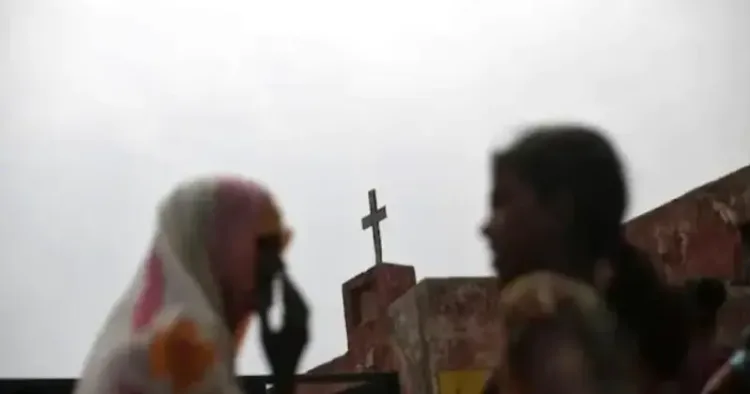New Delhi: The Supreme Court on Wednesday, January 22 asked the Chhattisgarh government to provide details of an alternative area designated for the burial of Christians in a plea seeking a Christina man’s burial in a native village.
While reserving its verdict in the matter, A Bench of Justices B.V. Nagarathana and Satish Chandra Sharma also asked the parties to quickly come up with a solution to resolve the issue of burial of the deceased Christian man whose body has been lying in the mortuary since January 7.
During the last hearing in the case on Monday, the top court had expressed concern over the lack the resolution on the part of both, the State authorities and the Chhattisgarh High Court for the burial of the deceased person.
In today’s hearing, Senior Advocate Colin Gonzavles who appeared for the petitioner submitted that there is an area delineated for the burial of Christians in the petitioner’s native village itself.
“Where we have a place de facto delineated in the village, to ask me to go outside (for burial) is discriminatory”, the senior lawyer said.
Further, he argued that the state’s claim that there is a designated burial area outside of the native village in question is an excuse contrived to not permit Christians to bury their dead bodies in their land.
It is a patent, hostile discrimination against persons who have converted to Christianity from their original tribe/caste, Gonzavles stated.
Moreover, the senior counsel submitted that there are various graves of Christian deceased persons in the village in question where even the accentors of the petitioner have been buried.
“Let me bury where my ancestors are. Until now nobody has gone to the designated burial area (outside the resident village),” said Gonzalves.
Meanwhile appearing for the State, the Solicitor General of India (SG) Tushar Mehta, on the other hand, argued that there is a burial area designated for Christians situated around twenty kilometres away from the village in question. It was further submitted that the Christian residents of four neighbouring villages carry out their burial in that designated area.
Further, the SG argued that allowing Christians to bury their dead in the village in question would disturb the public order.
“Suppose tomorrow a Hindu says I want to be buried in a Muslim burial ground? It is a public order issue. Public order is an exception”, SG Mehta said.
The Court asked the State to provide details of the alternative burial area exclusively designated for the burial of Christians.
“Where is that designated village? What is the name of the village and place mentioned? We want a categorical thing that such designated place is there”, Justice Nagarathana stated.
The Court said that the State government, in its response has not mentioned the location and extent of such designated burial area for Christians.
“The location and extent (of the designated burial area) is not mentioned (in the State’s affidavit). It’s very vague”, the top court judge said.
Thus, it proceeded to direct the State of Chhattisgarh to file a fresh response (affidavit) in which such missing details is mentioned.
Earlier, the petitioner Ramesh Baghel, approached the apex court seeking permission to bury his deceased father Subhas, a former pastor and a resident of Chhindawada village of Bastar after the Bilaspur high court on January 9 turned down his plea on the basis of a submission made by the Gram Panchayat stating no separate burial ground for Christians in the village.
The high court turned down the request, underlining that the same could cause unrest and disharmony in public at large. Baghel however via his counsel challenged the high court order in apex court on Monday.
During the hearing on Monday, Solicitor General Tushar Mehta informed the bench that there was no burial ground for Christians in the village and the man could be buried around 20km away from the village.
Baghel’s counsel Collin Gonsalves however, said the affidavit submitted by the State showed his family members were also buried in the village and the deceased was not being allowed the burial as he was a Christian.
Replying to which Mehta argued that the petitioner was adamant to bury his father in the burial ground of his family’s native village to create unrest between tribal Hindus and tribal Christians. He further requested the court for time to argue the matter in detail, after which the bench scheduled the hearing for Wednesday.
Dispute over pastor’s burial
Dispute broke out between the two sides in Chhindawada village after a group of villagers objected to the burial of Subhas, citing no Christian graveyard in the village. The deceased son then reportedly approached the police however no amicable solution was agreed upon. The deceased body was then shifted to a morgue on January 7.
Baghel then approached the high court, stating that the village had a graveyard in which a specific area was verbally allotted to the members of the Christian community for burial purposes. Though the high court’s bench turned down his request after a certificate of the Gram Panchayat stated that there was no separate burial grounds for the Christians in the village.
Notably, cases pertaining to dispute over burials of the dead ones in interiors of Bastar have turned heads in the past as well, reflecting the growing discomfort between the Hindus and the Christian community . (With Inputs from Agencies)



















Comments